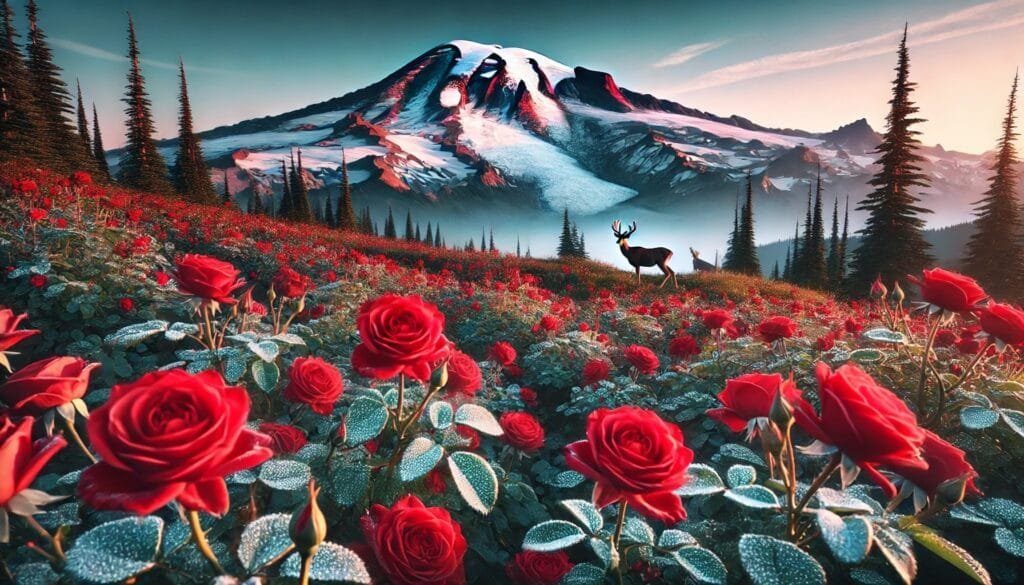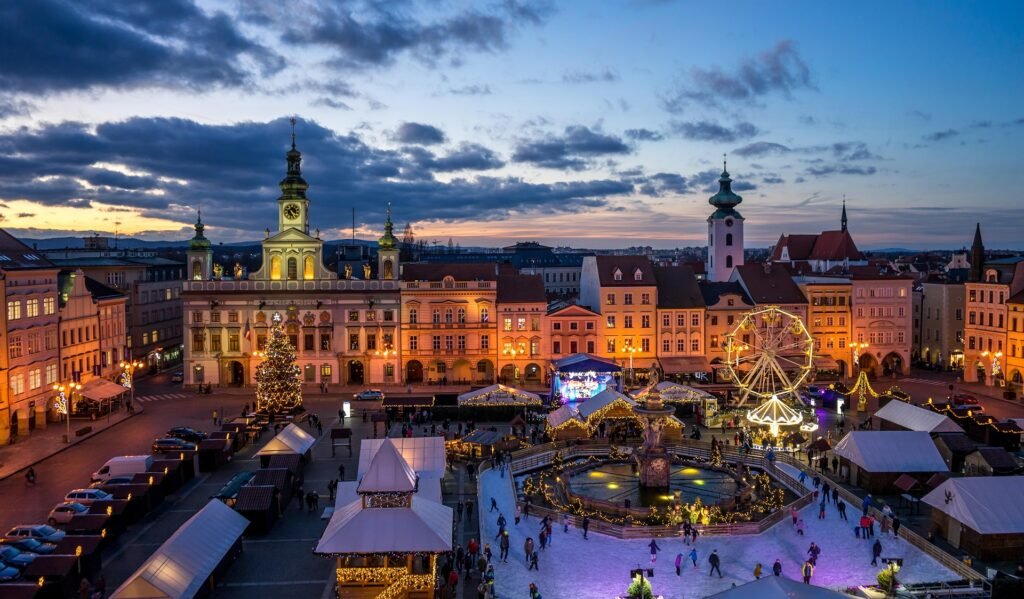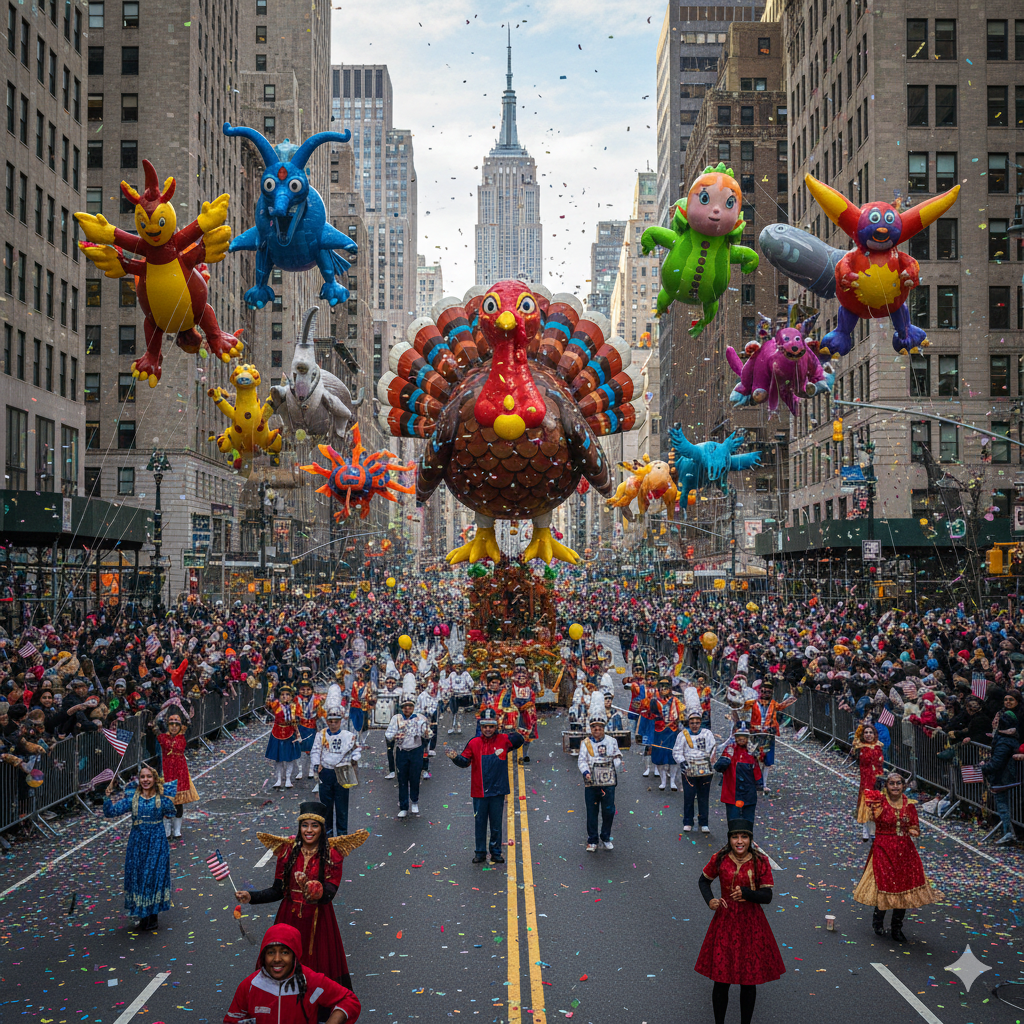Why is Mount Rainier so special? Somehow, the mountain casts a spell on almost everyone who sees it. Rising majestically above the skyline of Washington State, just 60 miles southeast of Seattle, Rainier has a presence that’s hard to ignore. It’s the kind of place that makes you pause, take a deep breath, and maybe reevaluate your plans for the day (spoiler alert: those plans should involve hiking boots).
But this mesmerizing mountain is much more than just a pretty backdrop for postcards and Instagram. Mount Rainier is a stunning blend of natural history, human tales, and geological wonders. And today, we’re peeling back the layers to explore a story of fire, ice, and—believe it or not—a romantic legend.
Did You Know?
Why is Mount Rainier Special?
Mount Rainier is no ordinary mountain. At 14,411 feet, it’s the tallest peak in the Cascade Range and an active stratovolcano. Yes, you read that correctly—an active volcano. It’s been standing strong for over 500,000 years, shaped by fiery eruptions and icy glaciers. And for centuries, it has been revered by Indigenous communities, who see it as a sacred and spiritual place known as Tahoma, meaning “the source of nourishment from the waters.”
Culturally, Mount Rainier holds deep significance not only for those who live nearby but also for the millions who visit Mount Rainier National Park each year. Established in 1899, the park preserves the mountain’s awe-inspiring alpine meadows, lush forests, and rugged glaciers. If Rainier could talk, its stories would fill volumes—some thrilling, some poignant, and some downright magical.
But its most fascinating tales lie in its dual nature, split between the realms of fire and ice.
Fire
Mount Rainier is a living, breathing volcano. While it hasn’t erupted in over 500 years, its fiery origins are still evident today in its rugged landscape. Beneath the surface, a bubbling, molten world continues to shape the mountain, making it a source of study (and fascination) for volcanologists.
Rainier’s eruptions helped shape the Cascade Range. Lava and volcanic deposits formed its ridges and valleys, and old mudflows spread far from the mountain. Its dramatic shape shows how powerful nature can be.
Despite being a literal ticking time bomb, Mount Rainier’s volcanic soil supports rich vegetation. Alpine wildflowers like lupines and paintbrush bloom with abandon in summer months, as if they’re completely unaware they live atop a sleeping giant.

Ice
Fire may have built Mount Rainier, but ice has carved its legacy. Home to 25 named glaciers, Rainier boasts the most glaciers on any mountain in the lower 48 states. These vast rivers of ice are constantly on the move, slowly reshaping the land as they creep down the slopes.
The most prominent glaciers are the Carbon Glacier and the Emmons Glacier. The Carbon is the thickest glacier in the lower 48 states, and the icy expanse of the Emmons is the largest by area. Together, they feed the rivers and streams that sustain ecosystems far beyond the mountain.
Standing atop one of Rainier’s glaciers, you can hear the creaks and groans of the ice as it shifts underfoot. It’s an otherworldly experience, one that makes it easy to believe this mountain is alive in every sense of the word.
And yet, while these glaciers are mighty, they also serve as a somber reminder of climate change—many are shrinking at alarming rates. Visiting Rainier is not just a feast for the senses; it’s a wake-up call to protect what remains.
The Story of Two Lovers
Mount Rainier’s breathtaking beauty wouldn’t be complete without a little folklore, and one of the most celebrated stories ties directly to its peaks. Here’s one of my favorites, a romantic legend from the Cowlitz.
Nekahni, the Great Spirit residing on Mount Rainier, falls in love with Lawiswis, the Queen of the Fairies. Nekahni builds a bower of snow-white roses for Lawiswis in Paradise Valley, where they enjoy their love. However, Memelek, a wicked witch, despises Lawiswis and plots to kill her using her army of snakes.
While Nekahni is away, Memelek attempts to attack Lawiswis. The mountain mist warns the roses, which then alert Nekahni. He casts a spell that transforms the roses into red flowers with sharp thorns, repelling the snakes and saving Lawiswis. Memelek is banished to the depths of the Nisqually Gorge, and the legend explains why roses have thorns and why snakes on the mountain are non-poisonous.
Final Thoughts and Looking Ahead
From its molten core to its icy crowns, Mount Rainier is a study in contrasts—and a reminder of how much awe and wonder the natural world can inspire. Whether you’re a climber, a day hiker, or just someone who loves a good story with a side of stunning alpine scenery, I think you can see why Mount Rainier is special.
Next week, we’re heading east for a deep dive into the wonders of West Virginia’s New River Gorge. Known for its whitewater rafting and beautiful vistas, it’s a completely different kind of adventure—but one you won’t want to miss.
Until then, here’s a challenge: Play today’s jigsaw puzzle and leave a comment with your time! Happy Puzzling!
If you enjoyed this week’s Friday Morning Post, please leave a comment with your time on the puzzle. I’d also love to hear your thoughts on the post! Thanks for being here!
See all my Friday Morning Posts here. If you missed last week’s post, you can use this link to view Exploring Shenandoah Civil War Sites.






11:33
28:39. Hint. Don’t do a puzzle todays after eye surgery.
Lovely puzzle. And a lovely myth. Folklore is always a joy to read.
11:00 flat – whooo that was a challenge
16:46 This is a lovely but difficult puzzle for me.
Beautiful picture. My time was 15:04.
26.40
11:39, need to stop watching tv while doing the puzzles!
8:06, stunning puzzle
Today’s puzzle was a tough one! I got 7:08.
This was a difficult puzzle for me. My time was 12:50. I love the puzzles and reading the history behind all these lovely places!
Ya beat me, Puzzler!
9:13 my worst time yet! dont know why i found this one so hard
I think everyone did, Kat.
Too embarassed to even leave my time. Turkey coma to blame. Love these puzzles. always look forward to Friday.
Don’t feel bad, Antonette. My time was well north of 20 minutes. I’ll reveal the exact time in next week’s Friday Morning Post, but this one was a toughie!